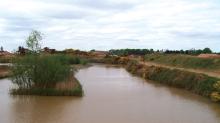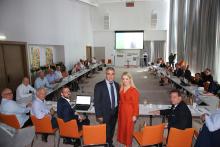Aggregate Industries is starting land reclamation to fill more than 30 acres of its on-site rock quarry in Saugus, Massachusetts.
Aggregate Industries, part of LafargeHolcim, will continue its current operations during the reclamation project, which will span over the next 15 years.
“We take our leadership as an environmental steward very seriously and are committed to exploring ways to repurpose our land as appropriate.," Brad Kohl, US, ACM head of Northeast and Great Lakes West regions, said in a statement.
"We’re excited about the opportunity to transform the Aggregate Industries Saugus quarry and to begin this reclamation project after years of planning,” he said.
“As the project moves forward, we will continue working closely with the Town of Saugus to consider potential uses for the site, which could be an economic driver for the area.”
Aggregate Industries worked closely with the Town of Saugus Town Manager’s Aggregate Post-Closure Committee for the past 10 years to develop plans and protocols for the reclamation project, and to develop a mutually beneficial reclamation plan. This partnership has also included reviewing potential end uses for the filled quarry.
Aggregate Industries also worked closely with and received approvals from the Massachusetts Department of Environmental Protection, Massachusetts Division of Fisheries and Wildlife, and the Massachusetts Executive Office of Energy and Environmental Affairs.
Approvals and permits outline the specific fill materials that can be used throughout the process, including soils generated from both Massachusetts Contingency Plan and non-MCP disposal sites, out-of-state soils, dredged material and blasted rock.
The plan specifies that any materials that arrive at the site must come from a known, tested source, with licensed site professionals overseeing both the generator’s soil and operations at the reclamation project.
At the Saugus site, Aggregate Industries currently operates two asphalt plants, a ready-mix concrete plant, quarrying and crushing activities, maintenance and other related activities. These industrial operations at the site will remain in operation throughout the reclamation process.





